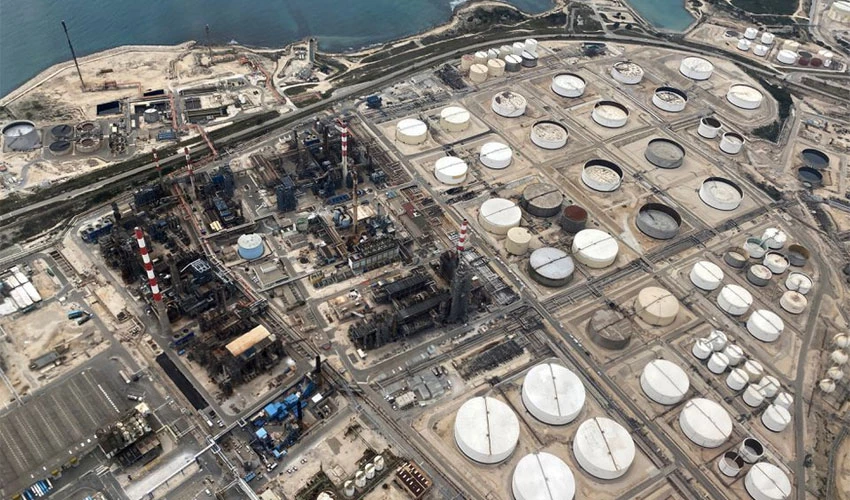Oil prices edge up ahead of OPEC+ meeting to discuss supply cuts

LONDON (Reuters) - Oil prices rose on Tuesday as expectations that OPEC+ may agree to a large cut in crude output on Wednesday offset concerns about the global economy.
Brent crude was up 64 cents, or 0.7%, to $89.50 per barrel by 0823 GMT after gaining more than 4% in the previous session.
US crude futures rose 46 cents, or 0.6%, to $84.09 a barrel, having gained more than 5% in the previous session.
The Organization of the Petroleum Exporting Countries (OPEC) and its allies, known collectively as OPEC+, is expected to cut output by more than 1 million barrels per day (bpd) at their first in-person meeting since 2020 on Wednesday, according to OPEC sources.
Voluntary cuts by individual members could come on top of this, making it their largest cut since the start of the COVID-19 pandemic, OPEC sources said.
"We expect a substantial cut to be made, which will not only help to tighten the physical fundamentals, but sends an important signal to the market," Fitch Solutions said in a note.
Kuwait's oil minister said OPEC+ would make a suitable decision to guarantee energy supply and to serve the interests of producers and consumers.
Edward Moya, a senior analyst with OANDA, said: "Despite everything going on with the war in Ukraine, OPEC+ has never been this strong and they will do whatever it takes to make sure prices are supported here."
OPEC+ has boosted output this year after record cuts put in place in 2020 when the pandemic slashed demand.
But in recent months, the organisation has failed to meet its planned output increases, missing in August by 3.6 million bpd.
The production target cut being considered was justified by the sharp decline in oil prices from recent highs, said Goldman Sachs, adding that this reinforced its bullish outlook on oil.
Oil prices have dropped for four straight months as COVID-19 lockdowns in top oil importer China curbed demand while interest rate hikes and a soaring US dollar pressured global financial markets.
Major central banks have embarked on the most aggressive round of rate rises in decades, sparking fears of a global economic slowdown.
However, Swiss lender UBS said going into the year-end it saw several bullish factors that could send crude prices higher, including "recovering Chinese demand, OPEC+ further supply cut, the end of the US Strategic Petroleum Reserve (SPR) release and the upcoming EU ban on Russian crude exports."
US crude oil stocks were estimated to have increased by around 2 million barrels in the week to Sept. 30, a preliminary Reuters poll showed on Monday.







